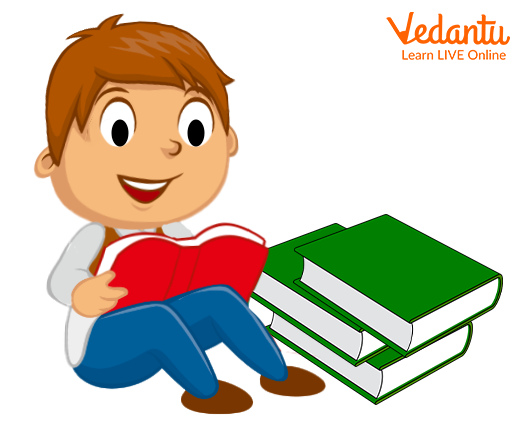




Fun Ways to Improve Kids' Reading Fluency and Understanding
Start the Practice of Reading - Reading for Year 1
Did you know, that your children will be growing a high range of phonetic learning and reading skills when they reach age 5 to 6? This is the time when they start their reading for year 1. During this time, their memory is strong enough to grasp vocabulary, pronunciation, and other reading skills. Thus, this time should be used advantageously - as parents, you can encourage reading skills among your children so that they master the skill of fluent reading with the correct pronunciation.
How Can Your Child Become a Master at Reading?
Reading fluently is very important for your child, more importantly, it will be beneficial for them when they grow up. But how to make your children good at reading skills? This content is specially designed for the purpose of updating you and your child on how to master reading for year 1.

Practice Reading
In this context, we consider the reading practice to start among your children from a specific month in a year. This is done for good time management and to have a proper account of their progress in reading skills. Reading for Year 1 is hence started from the month of January for your children.
Reading for Year 1 - Learning Phonics and Comprehension Skills
The reading for year 1 gets started for your child when they start their journey with learning phonics, comprehension study, and acquiring high reading skills. At this stage, the prior focus is on developing their phonetic learning and comprehension skills. This will help them to read fluently with full confidence.
After 6 or 7 months, screen your child and test their knowledge of phonics. They are expected to show progress in their phonics and comprehension skills by this time. Good progress will get reflected if they are guided properly at home and school.
But, how to guide them well at home? Worry not, for that we have listed down the tips on how to guide your child so that they can have good reading, phonetic as well as comprehension skills. But before this let us check the list of ‘must do’ pointers.
Be a Guiding Light for Your Child - ‘Must Do’ Pointers to Help Yourself

Mother Helping her Daughter to Read
These are some ‘must do’ pointers that are to be included in your guiding routine to help your child.
Encourage your child to use phonic skills to decode any words.
Mix the sounds and form words out of them.
Read out some tricky or exceptional words.
Readout the words which have different and unique endings.
Read good English books to your child.
Read the same books twice or thrice so that your child can catch up on the pronunciation properly.
Let them first listen to you while you read a simple story and then make them summarize the whole story in their own words.
Read interesting tales - short stories, fables, folklore and fairytales, this will catch their interest and make them learn difficult words happily.
Listen to the pronunciation of the difficult words and then make your child read along with you.
How Can You Help Your Child at Home?

Kids Reading at Home
There are numerous ways to help your child with reading. We present below the top ideas to help your child at home.
1. Listen to What Your Child Reads
Be considerate of the books which your child brings from school or any library. The books would have a mark on them as ‘reading books’ or ‘reading schemes’ or you can understand the context by just going through the pages. The reading books should consist of new words to read, and sensible stories, the writing should be clear and big enough to catch the attention of your child.
They can also re-read the same book, this will help them remember the words and grasp them easily the second time if they have missed the first time.
2. Read Good Books to Your Child
Reading to your child will be very beneficial to your child as well as pleasurable for you. Reading to them will make them enjoy your reading and at the same time help them build vital comprehension skills. Also, children who cannot read alone or have difficulty reading by themselves can follow your steps while you read. Thus, read as many good books as you can.
3. Maintain Time-Table
Reading for ten minutes a day at least will go a long way in the focus of developing the reading skills of your child. You can make them read straight after finishing school, or while they are taking an evening break. Example of a sample timetable:
Reading Time:
While showering and dressing up in the morning at 9:00 am - this time you can make them read some moral stories.
While they end their study (as per their routine), suppose at 12 noon - this time kids can read some general knowledge books.
After they are up from a fresh nap at 4:30 - this time they can give a whole-hearted reading to a long reading book.
While they go to bed at 10 - here they can read their favourite bedtime story book or listen to an audio book or even listen to you reading (which is the best!)
4. Choose Good Books
Read good books to them. Choose books that excite your children. Books with colourful illustrations and pictures on them will attract your child to read them often. Some good reading books for the kids are listed down below:
Ruskin Bond - Great Stories for Children.
Phonics and Reading Activity Book.
I Can Read Series for Grade I.
Grandparents Bag of Stories.
5. Good Apps For Reading
If you want to inhibit good habits in your kids, turn the negative habits into positive ones. One such way is installing good reading apps on your phone. You can install Kindle or Epic which will work great for your kid's reading skills. You can also give them access to kid’s podcasts so that they listen to the pronunciation of difficult words. Thus, the next time your kid is busy with the phone, worry not! For they must be engaged in fixing their reading skills!
6. Make the Words Sound if Stuck
If your child gets stuck on a difficult word then make them sound the phonics first, automatically they can pronounce the words nicely after that.
This article was only a guide to help you and your child to acquire the correct steps in English Reading. You can confirm the progress of your child by tracking their progress report and also by encouraging them with good reading skills.
FAQs on Interactive Reading Practice for Kids: Build Skills & Confidence
1. What is the best way to start reading practice for a young child?
The best way to start is by making reading a fun, shared activity. Begin with phonological awareness—helping your child recognize the sounds in words. Use picture books to build vocabulary and introduce concepts of print, like reading from left to right. Establishing a daily routine, even for just 10-15 minutes, creates a positive habit. You can find more tips on making reading for kids an enjoyable experience.
2. What are some fun exercises to improve a child's reading skills?
To make reading practice enjoyable, you can turn it into a game. Here are some fun exercises:
Word Hunts: Ask your child to find specific words or letters in a storybook or around the house.
Reading Aloud Together: Take turns reading pages or sentences from a book. Use different voices for characters to make it more engaging.
Picture Comprehension: Use books with no words and ask your child to tell a story based on the illustrations. This builds narrative skills and is a great way to introduce picture comprehension.
Rhyming Games: Say a word like "cat" and have your child come up with words that rhyme, like "hat" or "mat".
3. How can I help my child read more fluently, not just decode words?
Reading fluency is about reading smoothly, accurately, and with expression, much like how we talk. To improve this:
Repeated Reading: Encourage your child to re-read a favourite short story or poem several times. Familiarity builds speed and confidence.
Model Fluent Reading: Read aloud to your child daily, using expression and a natural pace. They will naturally start to mimic your style.
Use Sight Words: Practice common words (like 'the', 'and', 'is') that appear frequently, so your child can recognize them instantly without sounding them out.
Focus on making progress, not perfection, to keep the experience positive.
4. What is the difference between reading fluency and reading comprehension?
While related, they are different skills. Reading fluency is the ability to read words and sentences quickly, accurately, and with proper expression. It's the technical skill of reading. Reading comprehension is the ability to understand the meaning of what has been read. A child might read a page fluently but not be able to tell you what it was about. Both are crucial; fluency allows the brain to focus on understanding the text rather than struggling with individual words. Vedantu offers resources specifically focused on improving reading comprehension.
5. At what age can a child typically start learning to read?
Children develop at different paces, but most are ready for foundational reading skills between the ages of 4 and 5. At this stage, they can start learning letter sounds (phonics) and recognizing sight words. Simple CVC (consonant-vowel-consonant) words like 'cat' or 'sun' are a great starting point. The focus should be on building a strong phonological awareness, which is a key predictor of future reading success.
6. My child seems to hate reading. How can I help a reluctant reader?
For a reluctant reader, the key is to remove pressure and find the "fun." First, identify the reason for their reluctance—is the material too difficult, or do they find it boring? Then, try these strategies:
Connect to Interests: Find books about their favourite topics, whether it's dinosaurs, space, or video games. Graphic novels are an excellent choice for visual learners.
Lower the Stakes: Let them read anything—comics, magazines, even joke books. The goal is engagement, not just reading classic literature.
Shared Experience: Read a book together and then watch the movie adaptation. Discuss the differences. This makes the story a multi-sensory experience.
Discovering the right books for reluctant readers can completely change their perspective.
7. Why is reading practice important beyond just schoolwork?
Reading practice is a foundational skill that impacts a child's entire development. Beyond academics, regular reading helps to:
Expand Vocabulary: Children are exposed to words they might not hear in everyday conversation.
Improve Concentration: Sitting down with a book strengthens a child's ability to focus for extended periods.
Develop Empathy: Stories allow children to see the world from different perspectives, fostering emotional intelligence.
Spark Curiosity: Reading introduces new ideas and worlds, encouraging a lifelong love of learning.
Ultimately, it equips them with essential critical thinking and communication skills for life.















